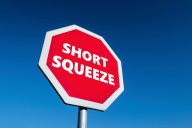
Nasdaq 100: Trading US CPI
Futures up on Nvidia’s China sales resumption of AI chips, but the next test is US pricing data.
13 hours ago

Cocoa price prediction: Third-party target
Read our cocoa price forecast for 2025 and beyond, with insights from third-party analysts and commodities market experts.
15:58, 14 July 2025

Top 5 biggest short squeezes
Explore five iconic short squeeze cases like GameStop & Tesla. Learn how positioning, sentiment & timing drive dramatic market moves.
15:09, 14 July 2025

Nvidia stock forecast: Third-party price target
Discover third-party Nvidia stock forecast predictions for 2025-2030 and beyond, with analyst targets, historical prices, and trading strategies.
15:41, 11 July 2025

Trading Bitcoin's all-time high in July
Breakout in price finally sees $118,000, keeping technicals bullish in both daily and weekly time frames.
10:16, 11 July 2025

Tesla stock forecast: third-party Tesla (TSLA) price target
Discover the Tesla (TSLA) stock price forecast, with predictions, price drivers, and Tesla CFDs trading strategies on Capital.com
12:42, 10 July 2025

Ripple XRP price prediction: Third-party price target
Discover the ripple (XRP) price predictions for 2025 and beyond, with analyst price targets and CFDs trading strategies on Capital.com
16:25, 8 July 2025

Ethereum price prediction: Third-party price target
Your Ethereum price prediction resource for 2025 onward, with analyst outlooks, price targets and CFD trading strategies on Capital.com
13:52, 8 July 2025

Euro forecast: Third-party price target
Read our EUR/USD forex rate forecast for 2025 and beyond, with insights from third-party analysts and market experts
12:06, 4 July 2025

Bitcoin price prediction: Third-party price target
We examine bitcoin price predictions for 2025 and beyond, with insights from third-party analysts and market experts.
11:10, 4 July 2025
